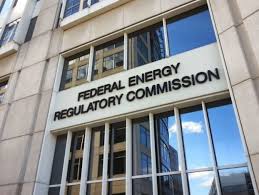
The Federal Energy Regulatory Commission is being asked to make a decision on “net metering” and it could possibly affect how Oklahoma utilities handle rates for solar and wind powered electricity.
Under Oklahoma law, utilities are not allowed to impose extra charges for customers signed up for net metering up to 100kw in size or 25,000 khw/year, which ever is less. Nor can the utilities require new liability insurance as a condition for interconnection.
But a recent filing has some legal experts suggesting that if okayed by FERC, it will “end net metering as we know it,” according to a report by Utility Dive.
The petition from the New England Ratepayers Association (NERA) asks FERC to “declare that there is exclusive federal jurisdiction over wholesale energy sales from generation sources located on the customer side of the retail meter.” In other words, NERA makes the case that any behind-the-meter, or customer-sited, energy generation is a wholesale sale, subject to FERC jurisdiction.
The group’s points echo some of the issues raised by utilities and their trade groups, which have long argued that forcing utilities to pay rooftop solar owners for the excess power they produce is unfair to ratepayers who don’t site solar. But the fact that the issue is being raised by a non-profit regional ratepayers group is raising eyebrows for some.
Public Citizen has filed to intervene in the motion, hoping to force NERA to disclose its funders.
“NERA is likely backed by very powerful, well-funded interests, and they are extremely smart and aggressive about their strategies,” Tyson Slocum, director of Public Citizen’s Energy Program, told Utility Dive.
Net metering compensates solar producers for the amount of generation they produce but don’t consume. Utilities pay for that excess generation at a retail rate, which NERA notes often exceeds the wholesale rate.
The group argues that in instances where “a portion of the energy produced behind the retail meter either exceeds the customer’s demand or is designed to bypass the customer’s load and is physically directed entirely to the local utility,” that exchange should be considered a wholesale sale, regulated by FERC.

In effect, the policy would not have immediate consequences, but would change the federal commission’s precedent set in previous cases, where the commission ruled net metering compensation was not the same as a wholesale sale. NERA disagrees with this premise, arguing that it was “improper for the Commission to do so,” in an FAQ emailed to Utility Dive by NERA president Marc Brown.
If successful, the petition would ensure that “any excess energy delivered to the utility at any time is a wholesale sale, subject to FERC jurisdiction,” Jeff Dennis, managing director and general counsel at Advanced Energy Economy told Utility Dive. “Therefore, it’s either a sale under [the Public Utilities Regulatory Policies Act (PURPA)] subject to avoided cost pricing, or the customer essentially has to have a rate on file with FERC.”
The technical feasibility of such a shift is not clear, Ari Peskoe, director of the Electricity Law Initiative at the Harvard Law School Environmental and Energy Law Program. told Utility Dive. Most rooftop solar would likely fall under the jurisdiction of PURPA as a qualifying facility, and therefore be priced based on the avoided cost of generating that power, argued the petition.
But under that scenario, you would need to distinguish between the energy that someone consumes from their utility and the energy that someone exports from their house to the utility, which would potentially require a second meter on the solar system itself.
“The practical implication would have to be that you’d have to add this giant cost on all these presumably existing and new rooftop solar facilities that they would need the second meter,” said Peskoe. “I don’t know how that would work.”
Laws and regulations on net metering vary state by state, but in total 41 states have some sort of net metering policy in place.
Several states are in the process of examining successor tariffs to net metering, including New York and Utah. But some state policies have fallen short — many point to Nevada and Maine as examples of states where repeals of net metering led to economic disaster for solar.
“For rooftop customers, net metering has been a successful policy that has helped drive the growth of solar around the country, while lowering electric bills for homeowners and small business owners,” Katherine Gensler, vice president of regulatory affairs for the Solar Energy Industries Association told Utility Dive in an email. SEIA is still reviewing the NERA petition, but said “Nevada is a perfect example of what happens to local clean energy economies when states gut net metering.”
States would likely not be happy with such a disruption of current policy, said Dennis, because it would complicate some of those current proceedings on net metering.
“A state couldn’t simply decide, ‘Well, maybe we want to rethink the rate structure here,'” he said. “A jurisdictional determination like this would really take a lot of what states believe is in their control,” including the rates, terms and conditions that surround self-generation.
But NERA says it doesn’t see itself as interfering with state rights.
“Every state will still have the ability to support solar or any other form of generation. There are numerous tools that state legislatures and regulatory bodies have at their disposal to support favored generation,” such as tax credits, zero emissions credits, and other incentives, the group said in its FAQ.
Although NERA says it represents ratepayers in New England, it asserts that the most effective way for it to attack this policy is at the federal, not state, level.
“[N]et metering is having an unfair and harmful impact on ratepayers, especially low-and middle-income families. Given this problem, NERA has chosen to challenge net metering at the body which has the proper jurisdiction over wholesale electricity transactions,” the group said in its FAQ.
But some are suspicious of the group’s backing. The two lawyers tasked with the case have traditionally worked for large industry trade groups, and the cost to hire them plus the $30,060 filing fee at FERC raises the possibility for some that the group may have more resources than just a grassroots consumer group.
“The attorneys that are on this petition are typically working with big utilities and other energy companies,” said Peskoe. “They don’t typically work with small nonprofits and put together these extensive petitions.”





